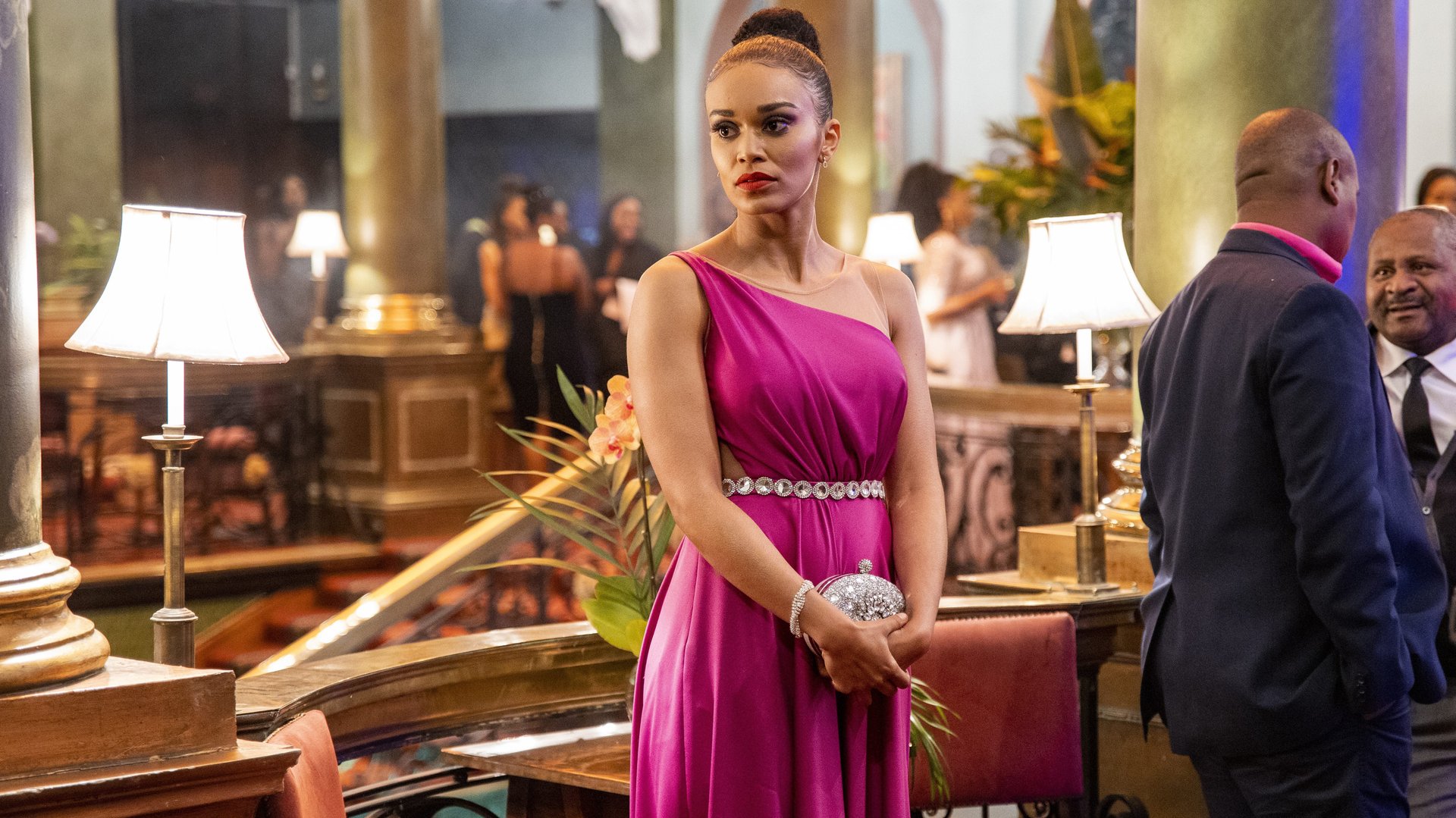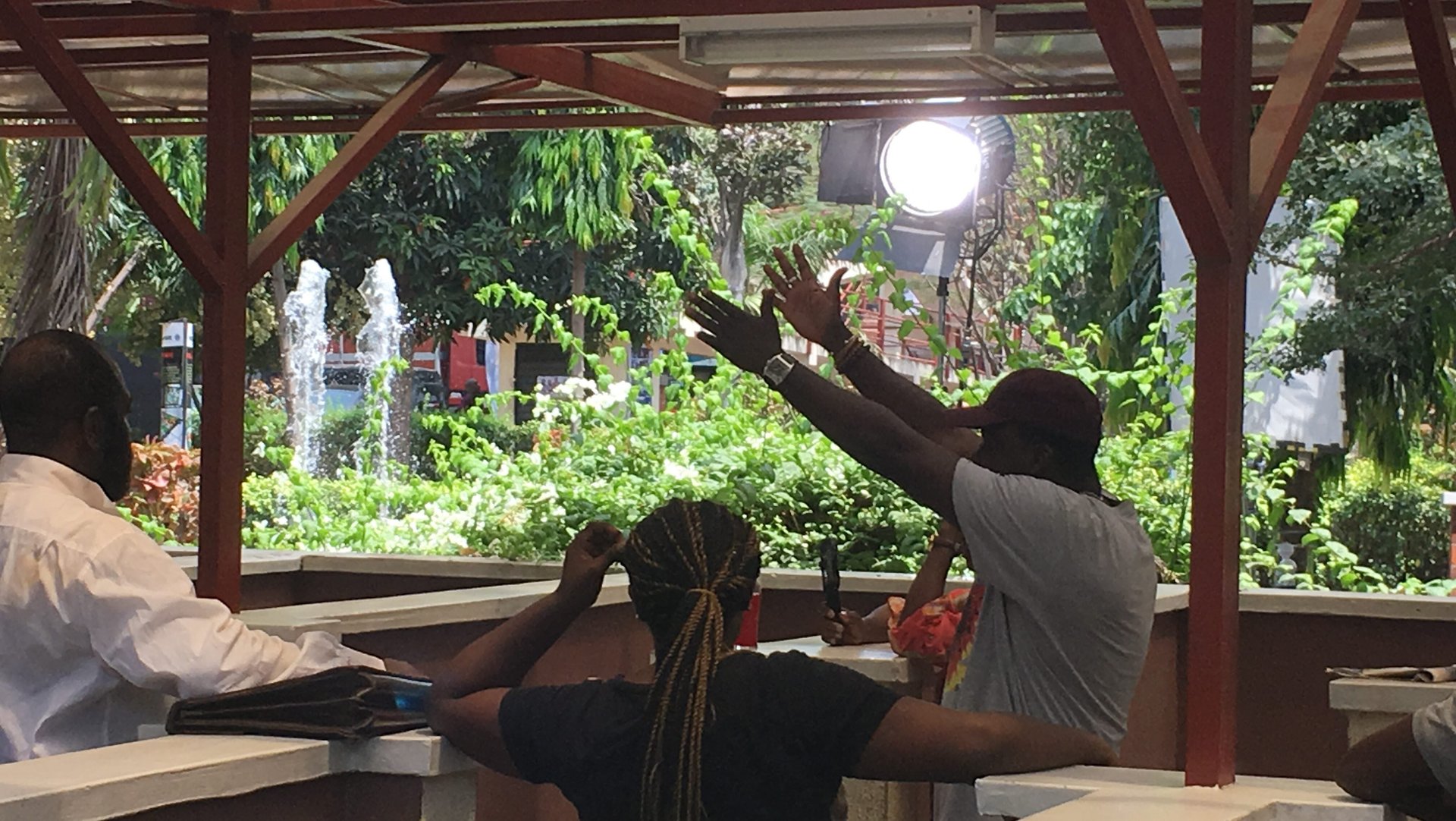Netflix’s big bet on Africa kicks off with Queen Sono and a Nollywood push
Within its first few weeks of release, Queen Sono, Netflix’s first fully produced African original series, shot to #1 in viewership in several African and Caribbean countries and at one point in its first week it was ranked 7th on Netflix in the United States, according to a tweet by Pearl Thusi, the show’s star.


Within its first few weeks of release, Queen Sono, Netflix’s first fully produced African original series, shot to #1 in viewership in several African and Caribbean countries and at one point in its first week it was ranked 7th on Netflix in the United States, according to a tweet by Pearl Thusi, the show’s star.
Netflix itself, as per usual, declined to share details on the show’s viewership, but there are plenty of clear signs it is putting the building blocks in place to have a real run that could change the shape of Africa’s entertainment industry.
Queen Sono was led by South African writer/director Kagiso Lediga and featured an all African cast and crew. It tells the story of a troubled spy (Queen Sono, played by Pearl Thusi) who is haunted by the assassination of her mother, a famous anti-apartheid campaigner. “This is Africans telling African stories and having the power to decide how we tell these stories,” Thusi tells Quartz Africa.
The six-episode series, Netflix’s first script-to-screen Africa produced series, forms part of a much larger strategy to build an African audience on the continent, attract international audiences and connect with an increasingly influential African diaspora audience in markets across the United States, Europe and beyond.
Last year, Lionheart, featuring the Nigerian Nollywood star Genevieve Nnaji, was Netflix’s first original film in Africa even though the media giant had been buying content across the continent. In fact one of its first buys was a South African production called Catching Feelings directed by Kagiso Ledisa and also starring Thusi. With Netflix looking to expand in Africa, Queen Sono‘s early signs of success are a strong indication of a growing global appetite for stories set and filmed on the continent, directed and starring local African talent.
Business sense
Africa tapping into Netflix’s $15 billion original production and licensing budget would have a huge impact on a sector that while rich in talent, does not have access to the type of funding that enables filmmakers to easily produce content with the look and feel of international high-quality productions.
Queen Sono was shot in 37 different locations across Johannesburg including the CBD, Park Station and Soweto. Additional filming was also done in Nairobi, Lagos and Zanzibar, Tanzania. Such productions costs exceed the budgets of most film production companies on the continent.
“When you see the budget of some of the things Netflix commission I often wish we could work with those budget sizes,” says Kunle Afolayan, a veteran movie director in Lagos who was the first to license a Nollywood movie to Netflix in 2014. “We’re very fast and versatile. We don’t follow all the drama and bureaucracy—passion moves things here.”

Business sense is clearly at the heart of Netflix’s Africa expansion strategy. Revenues from streaming platforms are expected to exceed $1 billion in sub-Saharan Africa by 2024 (in 2018 revenues stood at just $223 million) with Netflix attracting 39% of subscribers in the region, according to Digital TV Research, a consultancy firm. Its main rival on the continent, South Africa-based, Multichoice’s Showmax has been credited with the bulk of rapidly growing number of digital video subscribers again driven by its focus on locally produced shows.
Having seen the homegrown success of local producers popping up across the continent out of hubs in Lagos, Nairobi and Kampala among others, Netflix is betting, like it has seen in Asia and Latin America, that diversifying from traditional Hollywood fare and tapping into these urban African hubs will be a winner with fans on the continent.
In recent months Netflix has been in and out of Lagos negotiating with Nollywood producers, working on deals set to roll out later this year. “They’re trying to do a lot of fascinating things in Nigeria with big deals coming with Nigerian talent,” says Afolayan. “I like their approach to things, they came to be part of the industry.”
Netflix Africa expansion
Netflix does not break out how many of its 167 million subscribers are on the African continent, but the Sub-Saharan African region is estimated to be a relatively low number particularly outside South Africa. But there’s increasing anecdotal evidence Netflix is beginning to capture the imagination of the continent’s growing middle class especially as exclusive TV and movie productions start come on stream.
But arguably the bigger incentive for Netflix’s Africa expansion might not be in Africa. Afolayan says Netflix executives have pointed out, sometimes with surprise, that his classic Nollywood movies are often being watched in many different countries outside Nigeria. With a large African diaspora plus a growing second generation of young Africans born abroad, platforms including YouTube, Spotify and Netflix have helped this demographic drive the international rise of Afrobeats, gqom, Nollywood and other African entertainment genres.
Having Africans front, back and center in the new productions while also providing budget for them to realize grand projects, is what Pearl Thusi believes is a game-changer for Netflix in Africa. “Foreign media houses keep commenting during my interviews how great it is to see so many black people on screen, but this is Africa, that should not be surprising,” she says.

Netflix’s original African content will also strengthen local filmmaking industry in that players in the sector will be able to stay on the continent and still attain global and regional success. Global stars can be made in Nairobi, Luanda, Johannesburg or Accra. To achieve its regional expansion goals, Netflix recently hired Dorothy Ghettuba as its head of African Originals.
Netflix will launch its second Africa series, Blood & Water, later this year. The show produced by a Cape Town based production company, Gambit Films, will have the South African director and writer, Nosipha Dumisa, heading the creative team and local film production unit.
The company also recently announced it will increase its investment in Nigeria’s creative community with the production of its first African original scripted series from Nigeria. The yet to be titled “Akin Omotoso Project” is a six-part series directed by the Nigerian director, writer and actor, Akin alongside Daniel Oriahi and CJ Obasi. The project is a sci-fi drama series set in modern-day Lagos.
Netflix continues to invest in other countries in Africa and signed a key partnership deal that has brought popular Nollywood titles to the service. This is in addition to other Africa-focused deals not signed on the continent. For example, Star Wars actor John Boyega is teaming with Netflix through his production company to develop non-English language films focusing on West and East Africa.
On Queen Sono and its ability to mirror African societies and in particular the presence of strong female leads, Pearl Thusi adds, “In a world that socially and economically puts you at the bottom of the food chain, African women are still here - still accomplishing great things despite it all.”
Thusi emphasizes that for her, this is the reality of what African women are – everyday heroes, breaking barriers. She was also given an opportunity to direct some parts of the first episode by Kagiso Lediga, giving her first directorial debut in the Netflix show.
“To reconnect with our power, we have to connect with our history to know who we really are. This is the power of storytelling and using films to reach large audiences” adds Pearl Thusi.
Additional reporting by Yinka Adegoke
Sign up to the Quartz Africa Weekly Brief here for news and analysis on African business, tech and innovation in your inbox